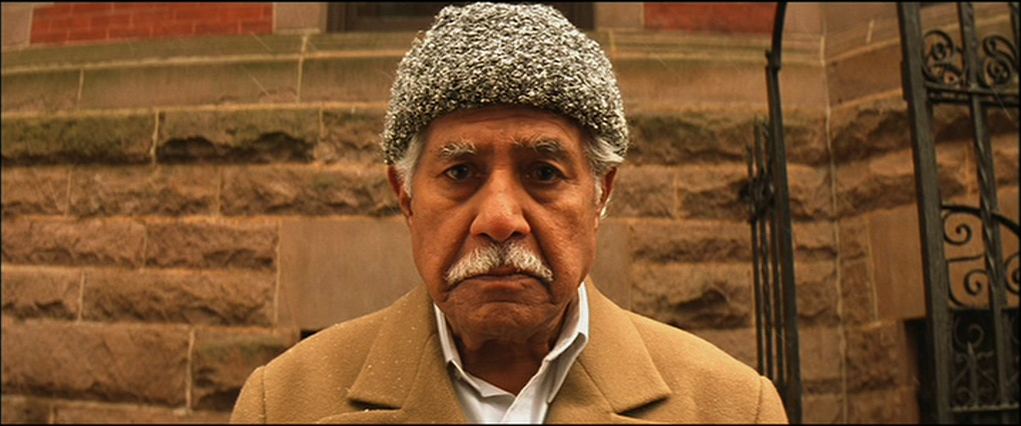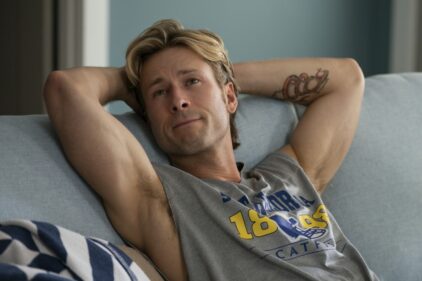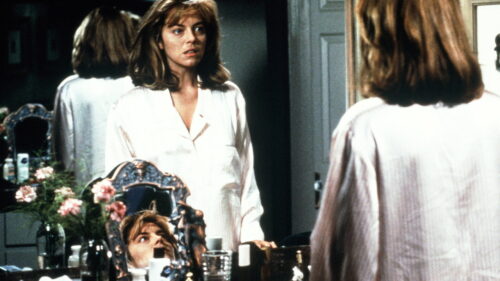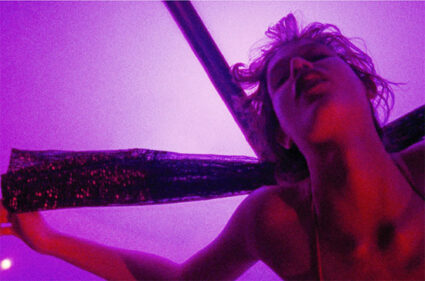Kumar: “Man, I blew it. I blew it, man.”
Anthony: “Kumar, what were you doing in the freezer?”
Kumar: “I don’t know, man, I lose my touch, man.”
Dignan: ” Did you ever have a touch to lose, man?”
— “Bottle Rocket,” written by Wes Anderson and Owen Wilson
The “Bottle Rocket” safecracker Kumar might have lost his touch at the end of that 1996 comedy, but his namesake actor never did.
Kumar Pallana, who died yesterday at age 94, became a beloved fixture in writer-director Wes Anderson’s films, and was an important part of the director’s personal history.
When Anderson and the Wilson brothers (Owen, Luke and Andrew) were living in Dallas in the early 1990s, they used to go to Cosmic Cup (now Cosmic Cafe), a vegetarian restaurant and culture center in the city’s Oak Lawn neighborhood run by the Pallana family. Kumar Pallana, who was born in India in 1918, was a yoga and meditation instructor who taught in a room on the building’s top floor. He was also a multitalented performer who worked as a gymnast, juggler and singer in Africa and the United States before settling in Dallas in the 1960s. Pallana appeared on U.S. television programs in the 1950s and ’60s, including “The Mickey Mouse Club,” “The Pinky Lee Show” and “Captain Kangaroo.” Late in life, he became a movie actor, starting in Wes Anderson’s “Bottle Rocket,” “Rushmore” and “The Royal Tenenbaums” and branching out into “The Terminal,” “Duplex,” “Bomb the System” and “Romance and Cigarettes.”
I had a few conversations with Kumar when I lived in Dallas—it was sort of a precondition of living in certain Dallas neighborhoods; that’s how much of a local character he was—and he always impressed me as charming and centered, a man of substance.
“I frankly don’t know how his plate-spinning or rope-trick skills compared to other professional magicians,” Wes Anderson wrote to me earlier today. “I never met any. But there is no question in my mind: Kumar was the gentlest, wisest, most cheerful and entertaining man I ever had the good fortune to know.”
Anderson and Wilson got to know Pallana the same way I did, by visiting Cosmic Cup, which was run by Pallana’s son Dipak. The place had different activities every night of the week. Anderson was the first to stop by, on chess night. He and Owen Wilson came back for jazz night. Pallana liked them enough to start a storytellers’ night and encourage them to bring their friends. They began playing cards together.
Wilson and Anderson wrote Kumar the safecracker in “Bottle Rocket” for Kumar specifically. The project started out as a black-and-white independent film that was supposed to be shot piecemeal over a period of months, but after James L. Brooks and Columbia Pictures took an interest in Anderson and the Wilsons, it ended up being completely reshot in color, with a budget and with James Caan in a supporting role. It launched the movie careers of a number of people, including Anderson, the Wilsons, local musician and actor Robert Musgrave, and Pallana.
Anderson and Wilson wrote roles for Pallana that showcased his charisma and physical control. He even let Pallana do a handstand in the background of a shot in “The Royal Tenenbaums.” Pallana was 82 at the time.
“It was very nice of Wes Anderson,” Pallana told The Believer in a 2003 interview. “He knows my work. He said, ‘What do you want to do?’ and I said, ‘Whatever you want to do.’ He said, ‘You want to do the headstand?’ and I said, ‘Yes.’ And I did the headstand, and Gene Hackman, he said, ‘Look at this guy! Look at this!'”
“He was pleasant and he was fun,” said Musgrave via phone from Dallas. “He sort of let you know that he’d been there and done that, and that whatever you were doing he’d probably done, and why wouldn’t he? Look at the life he’d lived. The dude was already, like, 76 years old when I met him!
“I think he might have told me that he definitely had acting experience,” Musgrave continued. “But you’ve gotta also remember, this was a guy who was a yoga instructor, and a juggling master, and a card sharp. So sure, he’s gonna have some acting experience!”
Musgrave went on to jokingly compare Pallana to Red in “The Shawshank Redemption,” a character who could get anybody anything. “If you need a car, or a heart stent, you know what I’m saying? Kumar was the guy. He was Red. He’d be like, ‘I got you covered, man! I got you covered.'”
Pallana was direct in his acting: no muss, no fuss. And there were moments—particularly as Pagoda, Royal Tenenbaum’s would-be assassin turned right-hand-man—when you got a sense of the resilience and focus required to make the journey that he made. For the most part, you think of Pallana as a joyous screen presence, at times bordering on adorable, but that flinty undertone is what made him fascinating and a bit mysterious. You could buy him as that sweet airport worker in “The Terminal” (a role that drew on his skills as an illusionist and variety show performer), but also as someone not to be messed with.
That latter quality was no magician’s trick. It came from a real place. Pallana left India for Africa fleeing political unrest, a powerful story that he recounted to The Believer.
PALLANA: Gandhi was just coming up, the Congress party was ten, twenty years old, and they wanted to kick the British out,” he said. “And they have the different parties. There were especially two: one with the violence, one with the non-violence. The violent people were underground. My brother was involved with the freedom fighters, with the violence. My brother was involved and we didn’t know and then all those people were captured and we find out that they are freedom fighters. And they were violent. They used violence because in those days the Raja and Maharaja were puppets. They were using people like slavery and then all the army controlled the land.
And so I realized that I wanted to do something like this, too, for my country. I wanted to become a gymnast, and then I wanted to become a singer so I could sing the freedom song. And it didn’t work out. [Laughs.] It didn’t work out because then I realized that if you want to fight or whatever you want to do, you have to learn to survive. And my father, he lost everything.BLVR: Because of your brother?
KP: Because of my brother. He goes everyday to court so he doesn’t go for his job. They captured our house because we are freedom fighters. So, we were kicked out from the home and we were really struggling and then I realized that I had to do something.
“He was so charismatic that you could’ve put him in a cartoon, or you could have put him a real show,” Musgrave said. “He could do so many different things, you could do a lot of things with him. You got Kumar Pallana, and you can put him in ‘Bottle Rocket’ and make him Kumar, the safecracker. But then you give him a broom, and you got [Mr. Littlejeans] in ‘Rushmore.’ Then you put a pink shirt and a scarf on him, and you’ve got Pagoda. He was an amazing man. He was a real character. ”
“Our oldest friend,” Wes Anderson said via email. “In age, anyway. He lived an awful lot of lives.”












